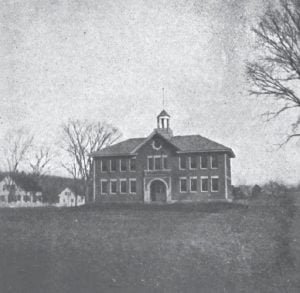Migration of Families out of Norwich VT
At the first enumeration of the inhabitants of eastern Vermont, as made by the authority of New York in 1771, Norwich was found to be the most populous of all the towns of Windsor County, having forty families and 206 inhabitants. Windsor followed with 203, and Hartford was third with 190. The aggregate population of the county (ten towns reported) was then but 1,205, mostly confined to the first and second tiers of towns west of the Connecticut River. Twenty years later, in 1791, Hartland led all the towns of the county with 1,652 inhabitants, Woodstock and Windsor coming next … Read more


